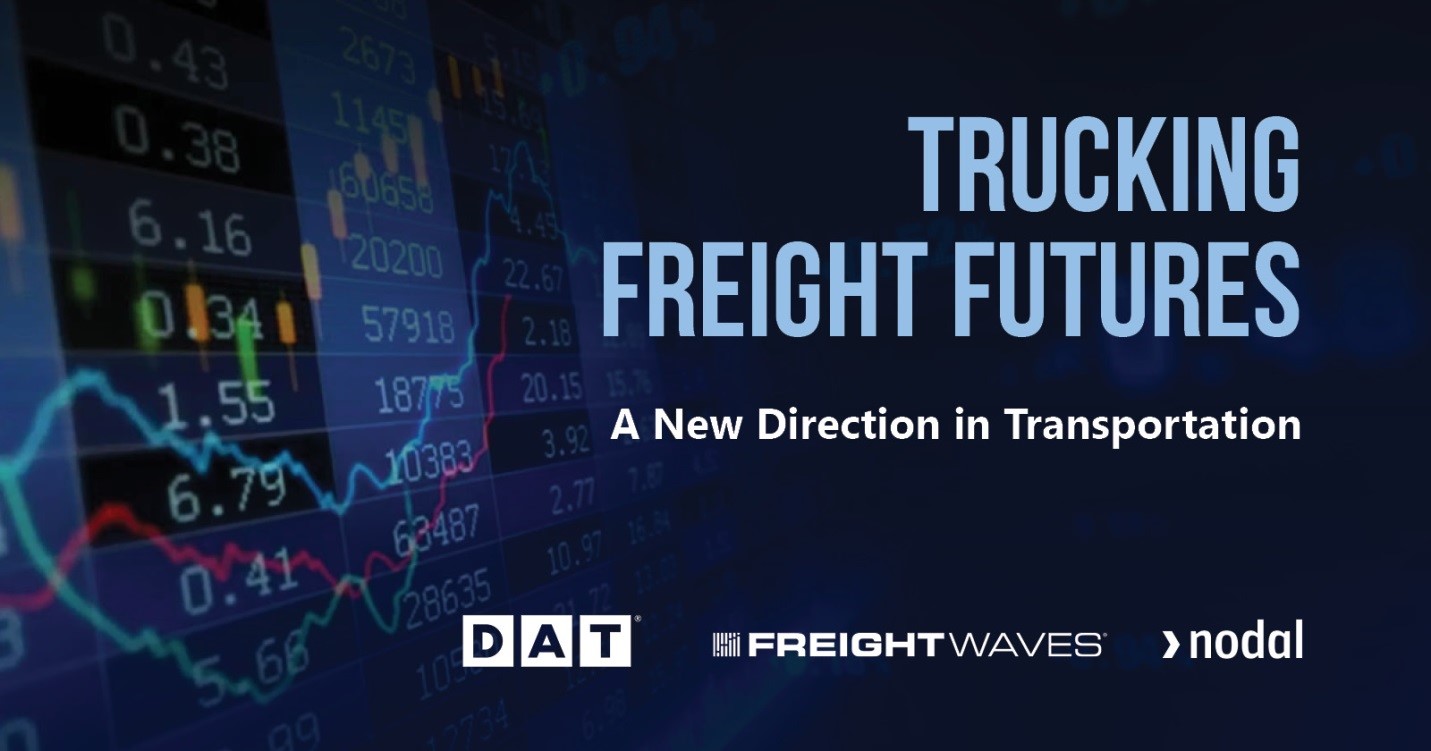What Are Trucking Freight Futures?
Print this Article | Send to Colleague
By Matt Sullivan, DAT Solutions
Trucking is undergoing a transformation, as new technologies, e-commerce, ELDs, and economic growth reshape the supply chain landscape and add volatility to the mix. That volatility exposes motor carriers, freight brokerages, 3PLs, and shippers to more risk. That's where the first-ever Trucking Freight Futures exchange comes in.
Launched in March, the exchange was created by DAT, FreightWaves, and Nodal, as a way for transportation companies and shippers to hedge against rising and falling truckload rates, providing a financial market to offset higher expenses or lost revenue.
Below are some of the most frequently asked questions about Trucking Freight Futures.
What are Trucking Freight Futures contracts, and how does the exchange work?
Trucking Freight Futures work just like the futures markets for oil or any other commodity. Companies purchase futures contracts on Nodal Exchange as a way to reduce the financial risks associated with volatile spot market freight rates. Unstable prices create cash flow issues for trucking companies, so those businesses can hedge against price changes by buying or selling futures contracts. These are cash-based contracts, meaning that no truck is involved in the transaction.
Currently, Trucking Freight Futures are available for dry van only.

Who buys and sells trucking futures contracts?
Who buys and sells trucking futures contracts?Trucking futures can be helpful for motor carriers, freight brokers, third-party logistics providers, shippers, financial firms and commodities traders.Shippers buy futures contracts as a hedge against higher expenses, to protect against rising truckload rates. Motor carriers purchase futures contracts as a hedge against lost revenue, to offset lower profits when rates decline. Freight brokers and 3PLs would buy and sell on both sides of the market.
How can I trade on the Trucking Freight Futures exchange?
Participants in futures trading must be members of the Nodal Exchange and have an account with at least one of Nodal's futures commission merchants (FCMs). All trading occurs on Nodal's online platform. Click here for more details on how to become a member of the Nodal Exchange and see a full list of FCMs.
What determines the prices on these contracts?
DAT’s massive spot market index is the industry standard for pricing, and is far and away the best source for assessing which direction rates are moving. The futures contracts financially settle based on daily spot market dry van rates provided by DAT for seven directional lanes that best reflect the market trends for those regions, plus three calculated regional indices and a national average.
Futures contracts are available for these seven dry van lanes, which best reflect the market trends for those regions.
| • Chicago to Atlanta | • Dallas to Los Angeles |
| • Atlanta to Philadelphia | • Los Angeles to Seattle |
| • Philadelphia to Chicago | • Seattle to Los Angeles |
| • Los Angeles to Dallas |
Futures contracts are also available in regional buckets for East, West, and South, as well as a national average based on the three regions.
How will this change how the trucking industry does business?
Shippers, carriers, and freight intermediaries will be better able to forecast their expenses and revenue. It also provides more transparency than the industry has ever had before, allowing businesses to negotiate price with more perspective on future market conditions. It’s a win-win for everybody.
Read more about Trucking Freight Futures in Wired and Business Insider.
Interested in trading Trucking Freight Futures contracts? Contact DAT to learn more.

